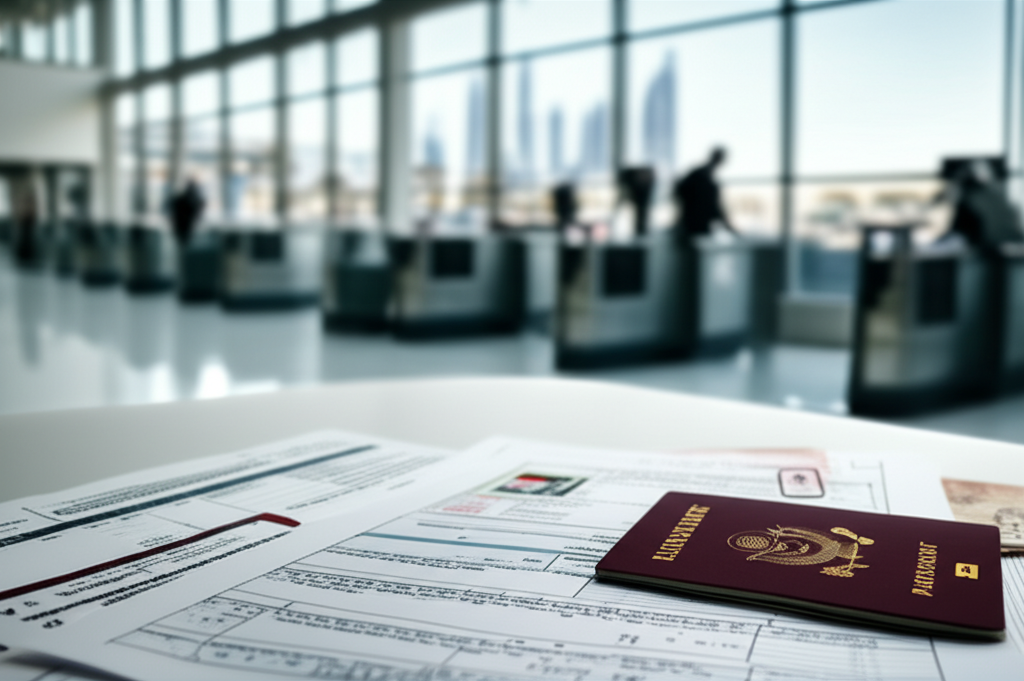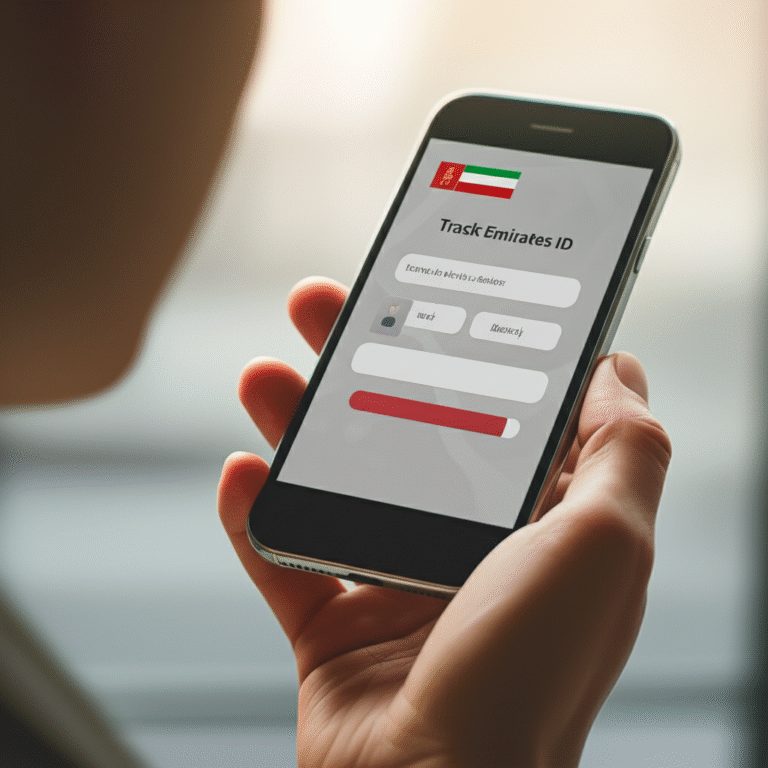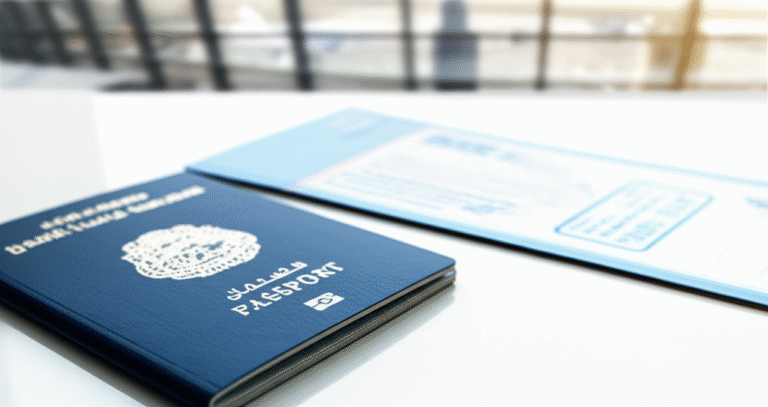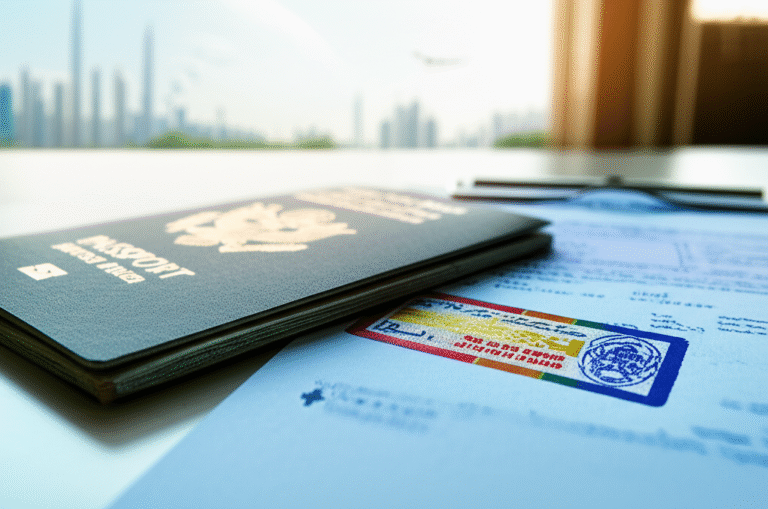How to Divorce in UAE: Your Complete Guide

Navigating divorce in the UAE requires understanding specific legal procedures. This guide breaks down how to divorce in UAE, offering a clear, step-by-step process for residents and expats, ensuring a smooth and informed journey.
Key Takeaways
- Understand UAE divorce laws.
- Gather necessary documentation.
- Initiate the court process correctly.
- Address child custody and financial settlements.
- Finalize your divorce decree.
Deciding to end a marriage is a significant life event. When this happens in the United Arab Emirates, understanding the legal framework is crucial. You might be an expat navigating unfamiliar territory or a resident seeking clarity on the process of how to divorce in UAE. It’s normal to feel overwhelmed by legalities. This guide is designed to demystify the procedures, offering you a clear, step-by-step approach. We will walk you through each stage, from initial requirements to the final decree, ensuring you feel informed and empowered. Let’s explore the path to a divorce in the UAE.
Understanding Divorce Laws in the UAE

The legal landscape for divorce in the UAE is influenced by Sharia law, particularly for Muslim residents. However, the UAE has also introduced specific laws and procedures that cater to non-Muslim expats, often allowing them to apply the laws of their home country in certain circumstances, especially concerning marriage and divorce. This dual approach ensures a degree of flexibility and fairness. For Muslim couples, divorce proceedings are generally governed by the Federal Decree-Law No. 29 of 2020 on Personal Status, which outlines grounds for divorce, rights of spouses, and matters related to children. For non-Muslims, Federal Decree-Law No. 25 of 2020 concerning Civil Personal Status Law offers a framework, and in some cases, parties can opt for the law of their nationality. It’s essential to determine which legal framework applies to your specific situation, as this will significantly impact the process and outcomes.
The UAE’s judicial system is sophisticated and aims to uphold justice and order, mirroring the nation’s commitment to a structured society. Understanding these foundational laws is the first step in navigating your divorce journey with confidence.
Types of Divorce in UAE
There are several ways a divorce can be finalized in the UAE, each with its own implications and requirements. Understanding these options will help you choose the most suitable path for your circumstances.
1. Mutual Consent Divorce (Talaq-e-Mubarat)
This is the most straightforward and amicable way to end a marriage. It occurs when both spouses agree to divorce and are willing to reach settlements on issues like child custody, alimony, and division of assets. In this scenario, the couple approaches the court with a mutual agreement. This process typically moves faster and involves less contention. For Muslim couples, this is often referred to as ‘Mubarat,’ signifying mutual cancellation. For non-Muslims, it’s a consensual dissolution of marriage, where both parties consent to the divorce and its associated terms.
2. Unilateral Divorce (Talaq for Muslims, Divorce by Court Order for Non-Muslims)
This type of divorce occurs when one spouse initiates the divorce without the other’s consent. For Muslim men, this traditionally involves the pronouncement of ‘Talaq’ under specific Islamic legal conditions. For Muslim women, divorce without the husband’s consent requires proving specific grounds in court, such as harm, abandonment, or failure to provide financial support. For non-Muslims, a divorce can be sought through the courts by one party, citing specific grounds like irreconcilable differences, adultery, cruelty, or desertion, as outlined in the relevant law.
3. Judicial Divorce
This is a divorce granted by a court after a judge has reviewed the evidence presented by both parties. It is typically sought when agreement cannot be reached on grounds for divorce or on the terms of settlement. The court will then make a binding decision based on the facts and applicable laws. This process can be more lengthy and complex, often requiring legal representation.
Who Can Initiate Divorce in UAE?

The ability to initiate divorce in the UAE depends on several factors, including the religious background of the couple and their residency status. Generally:
- Muslim Men: Can initiate divorce by pronouncing ‘Talaq’ under Sharia law, though court procedures are now often required for formalization and registration, especially for expat Muslims.
- Muslim Women: Can seek divorce through the court by proving specific grounds recognized under Islamic law, such as harm caused by the husband, his imprisonment for over three years, or his failure to fulfil marital obligations.
- Non-Muslim Couples: Either spouse can petition for divorce through the UAE courts, provided they meet the legal requirements and grounds for divorce established by either UAE law or the law of their home country (if applicable under Civil Personal Status Law).
- Expats: Non-Muslim expats can generally opt for the application of their home country’s laws regarding divorce, child custody, and asset division, provided it is permitted by the UAE courts. Muslim expats are subject to UAE personal status laws.
It is always advisable to consult with a legal professional to confirm eligibility and the specific procedures applicable to your unique situation. The UAE’s legal system, like its modern infrastructure, is built on clarity and order, ensuring that pathways are defined for residents and visitors alike.
Step-by-Step Guide: How to Divorce in UAE
Navigating the divorce process in the UAE involves several distinct stages. While the specifics can vary based on religion and nationality, the general pathway through the courts follows a structured approach. This guide provides a comprehensive overview designed for beginners.
Step 1: Pre-Consultation and Preparation
Before initiating any formal proceedings, it is highly recommended to seek legal advice from a qualified family lawyer in the UAE. They can explain your rights, obligations, and the most appropriate legal route. Gather all essential documents, which typically include:
- Marriage certificate (attested and translated if necessary)
- Passports and Emirates IDs of both spouses
- Birth certificates of any children
- Proof of income and assets
- Any prenuptial agreements
Understanding the legal implications and preparing your documentation thoroughly will streamline the entire process.
Step 2: Filing the Divorce Case
The process begins with filing a divorce petition with the relevant court. For Muslim couples, this is usually done through the Personal Status Court. For non-Muslim couples, the Personal Status Court or a general civil court may handle the case, depending on the specific emirate and circumstances, particularly if invoking the Civil Personal Status Law. The petition will detail the grounds for divorce and any claims related to child custody, alimony, and property division.
A representative from the family guidance section of the court may attempt reconciliation between the couple before the case proceeds to a judge. This step is mandatory for Muslim couples and often encouraged for non-Muslims.
Step 3: Court Proceedings and Reconciliation Attempts
If reconciliation fails, the case will be assigned to a judge. Both parties will be required to attend court hearings. You will have the opportunity to present your case, evidence, and arguments. The court will ensure that both sides are heard fairly. This stage is where negotiations regarding settlements often take place, facilitated by the judge or legal representatives.
Step 4: Issuance of Divorce Decree
Once the judge makes a decision, a divorce decree (or judgment) will be issued. This is the official document that legally dissolves the marriage. The decree will outline the terms of the divorce, including:
- Confirmation of the divorce
- Custody arrangements for children
- Alimony (spousal support) and child support payments
- Division of marital assets and debts
The decree must be translated into Arabic by a sworn translator and then attested by the court and Ministry of Foreign Affairs (MOFA) for official use, especially for those who may wish to remarry or use it outside the UAE.
Step 5: Post-Divorce Formalities
After obtaining the attested divorce decree, there are a few final administrative steps:
- Amending Personal Status: You will need to update your personal status with relevant authorities, such as the immigration department for visa changes and the Emirates ID authority.
- Enforcement of Orders: If there are any court orders regarding child support or asset division that are not being adhered to, you can seek enforcement through the execution court.
Pro Tip: Document Everything
Maintain meticulous records of all communications, financial transactions, and court documents related to your divorce. This organized approach will be invaluable throughout the legal process and in ensuring all agreements are upheld.
Documentation Required for Divorce in UAE
The specific documents needed can vary based on your nationality and religion. However, here is a general list of what you might expect to be required when you initiate the process of how to divorce in UAE.
For Muslim Couples:
- Original marriage contract (attested by the UAE Ministry of Foreign Affairs, if married outside the UAE)
- Talaq registration certificate (if applicable)
- Personal identification documents (Emirates ID, passport copies) for both spouses
- Civil status declaration from the Sharia court
- Children’s birth certificates (if any)
For Non-Muslim Couples:
- Original marriage certificate (attested and legalized, with Arabic translation if required)
- Personal identification documents (Emirates ID, passport copies) for both spouses
- Applications for divorce according to the Civil Personal Status Law or the law of the applicant’s home country
- Children’s birth certificates (if any)
- Financial disclosure statements (income, assets, liabilities)
It is crucial to ensure that all documents are properly attested and translated if they are not in Arabic. For foreign documents, this often involves attestation from the issuing country’s Ministry of Foreign Affairs, the UAE Embassy in that country, and finally, the UAE Ministry of Foreign Affairs.
Child Custody and Support in UAE Divorce
Ensuring the well-being of children is a paramount concern in any divorce. The UAE legal system prioritizes the best interests of the child in matters of custody and support. The laws here reflect a commitment to order and the protection of vulnerable individuals, showcasing Dubai’s advanced approach to social welfare.
Child Custody (Hadhana)
In Sharia-compliant divorces, custody (‘Hadhana’) is typically granted to the mother until the children reach a certain age (generally 7 years for boys and 9 years for girls), after which the father may be granted custody if it is deemed in the child’s best interest. However, under the updated Personal Status Law (Federal Decree-Law No. 29 of 2020), courts have greater discretion to grant custody to either mother or father, or even a third party, based on what serves the child’s welfare. For non-Muslims, custody is determined based on the ‘best interest of the child’ principle, often considering the parent with whom the child has a stronger bond and who can provide a stable environment.
Supervised visitation rights are usually granted to the non-custodial parent.
Child Support (Nafaqah)
The father is legally obligated to provide financial support for his children, regardless of who has custody. Child support payments are determined by the court based on various factors, including:
- The father’s financial capacity
- The children’s standard of living before the divorce
- The age and health needs of the children
- The cost of living in the UAE
These payments are intended to cover expenses such as accommodation, food, education, healthcare, and general maintenance. The amount can be reviewed and adjusted if there are significant changes in circumstances for the father’s income or the children’s needs.
The UAE’s legal framework is designed to ensure that children are not negatively impacted by divorce, providing a secure environment for their upbringing. For more details on legal aspects pertaining to children, you can refer to resources from the UAE Government Portal.
Financial Settlements in UAE Divorce
Dividing assets and determining spousal support are significant parts of the divorce process. The UAE’s approach aims for fairness and transparency, reflecting its commitment to economic stability and order.
Division of Marital Assets
For Muslim couples, Islamic Sharia law traditionally dictates that assets acquired by each spouse before the marriage remain their separate property. Assets acquired during the marriage, however, may be subject to division, with courts considering contributions from both spouses. Non-Muslim couples may have their marital assets divided based on the laws of their home country, if agreed upon and permitted by the UAE courts, or according to the principles of the Civil Personal Status Law, which also considers contributions made by each party.
Courts generally consider:
- Assets owned before marriage
- Assets gifted or inherited during marriage
- Assets acquired jointly during the marriage
- Contributions of each spouse to the family’s financial well-being
Spousal Support (Alimony/Maintenance)
Spousal support, or alimony, is awarded to maintain a standard of living for the receiving spouse post-divorce. For Muslim women, ‘Mut’ah’ (a compensatory sum) may be awarded upon divorce. For all divorcees, ‘Nafaqah’ (maintenance) can be awarded for a period, typically during the waiting period (‘Iddah’) for Muslim women, or longer if agreed upon or court-ordered, especially if the spouse is unable to support themselves. For non-Muslims, eligibility and duration for spousal support are determined by the court, often factoring in the length of the marriage, the financial needs of the requesting spouse, and their ability to earn an income.
The goal is to achieve a settlement that is equitable and practical for both parties, ensuring financial stability after the dissolution of the marriage. Consulting with a lawyer experienced in UAE financial law is crucial for understanding your rights and obligations concerning asset division and spousal support.
Navigating Divorce for Expats in UAE
The UAE is home to a large expatriate population, and the legal system has provisions to accommodate diverse backgrounds. Understanding how to divorce in UAE as an expat involves recognizing specific legal rights and procedures.
Applicable Law for Expats
According to the Federal Decree-Law No. 25 of 2020 concerning Civil Personal Status Law, non-Muslim expats have the option to apply the laws of their country of nationality to their divorce proceedings, including matters of child custody and financial settlements. This can be a significant advantage, allowing individuals to adhere to legal frameworks they are familiar with. However, this option must be formally requested from the court.
If no specific choice of law is made, or if the chosen foreign law is not recognized by the UAE courts, the Civil Personal Status Law of the UAE will apply. For expats who have converted to Islam during their marriage, they will be subject to Islamic Sharia law.
Challenges Expats May Face
- Documentation: Foreign documents often require extensive attestation and translation, which can be time-consuming and complex.
- Cultural Differences: Navigating legal procedures that may differ significantly from one’s home country can be challenging.
- Jurisdiction: Ensuring the UAE courts have jurisdiction over the divorce, especially if one spouse resides abroad.
- Enforcement of Foreign Judgments: If a divorce decree was issued in another country, enforcing its terms in the UAE can be complicated.
Engaging a legal professional with expertise in international family law and UAE divorce proceedings is highly recommended for expats. They can guide you through the complexities and advocate for your rights effectively.
Frequently Asked Questions (FAQ) About Divorce in UAE
How long does a divorce take in the UAE?
The duration of a divorce in the UAE can vary significantly. An uncontested divorce with mutual consent can be finalized within a few weeks to a couple of months. However, contested divorces involving disputes over child custody, finances, or other matters can take anywhere from six months to over a year, depending on the complexity and court schedules.
Can I get divorced if my spouse refuses?
Yes, you can still get divorced even if your spouse refuses. For Muslim men, this is through a Talaq process. For Muslim women and non-Muslims, a divorce can be obtained through a court order by presenting valid grounds for the dissolution of marriage. The court will review the evidence and make a decision.
What are the grounds for divorce in the UAE?
For Muslims, grounds include harm, abandonment, imprisonment, and failure to provide financial support. For non-Muslims, grounds can include adultery, cruelty, desertion, irreconcilable differences, or the breakdown of the marriage, as outlined in the Civil Personal Status Law or applicable foreign law.
Do I need a lawyer to divorce in the UAE?
While it is possible to proceed without a lawyer, it is highly recommended to hire one, especially for expats or in contested cases. A qualified family lawyer can ensure your rights are protected, navigate the complex legal procedures, and help achieve a favorable outcome. This is particularly important when dealing with international aspects of divorce.
What happens to my visa after a divorce in UAE?
If your visa was sponsored by your spouse, your visa will typically be cancelled upon finalization of the divorce. However, mothers with custody of children are often granted a grace period or a specific residence visa to care for their children. Expats may need to find a new sponsor or apply for a resident visa independently.
Can I remarry after divorce in the UAE?
Yes, individuals can remarry after a divorce in the UAE. For Muslim women, there is a mandatory waiting period, known as ‘Iddah,’ which must be observed before remarriage to ensure there is no possibility of pregnancy from the previous marriage. For men and non-Muslims, remarriage is permissible once the divorce decree is finalized and any other prerequisites are met.
Conclusion
Understanding how to divorce in UAE is essential for navigating this sensitive period with clarity and confidence. The UAE’s legal system, while rooted in tradition, has evolved to offer structured pathways for both Muslim and non-Muslim residents, reflecting its commitment to justice, order, and the well-being of all its inhabitants. From understanding the applicable laws to gathering necessary documentation and adhering to court procedures, each step is designed to ensure a fair and equitable resolution. By seeking professional legal counsel and staying informed, you can navigate the divorce process effectively, safeguarding your rights and those of your family. The UAE’s progressive legal framework aims to provide a stable and secure environment, even during challenging personal transitions.





